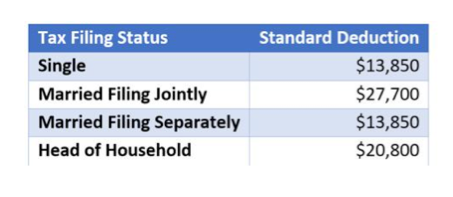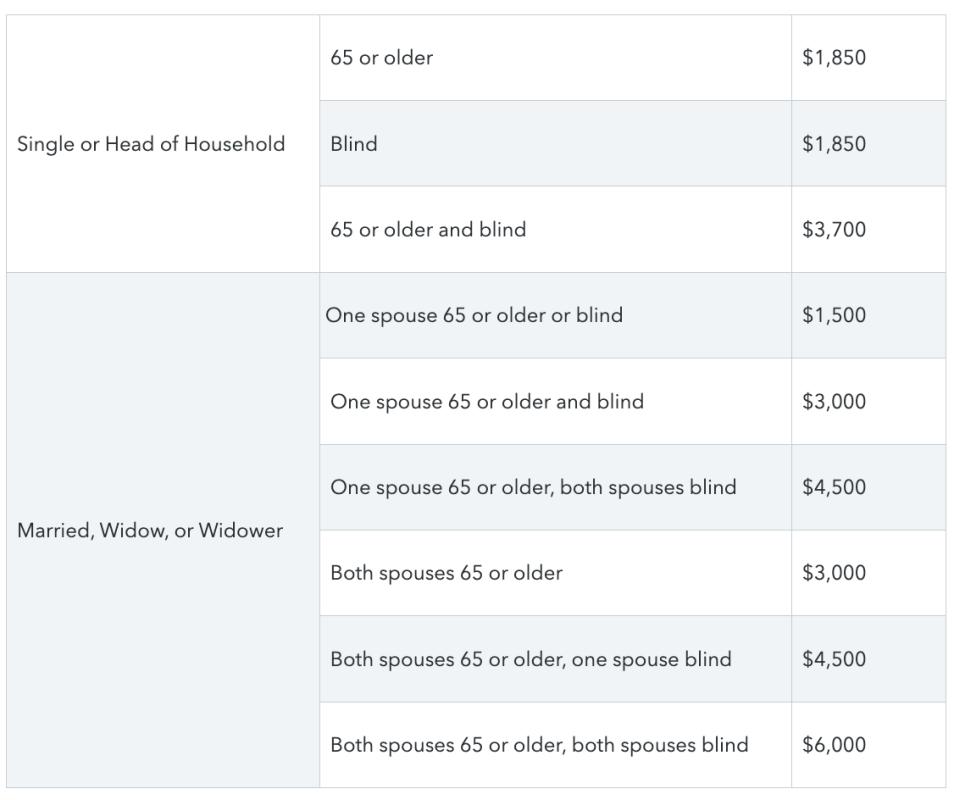How the FEIE Standard Deduction influences eligibility for other tax credits
Wiki Article
Everything about the Foreign Earned Income Exclusion: Maximizing Your Standard Deduction Perks
The Foreign Earned Revenue Exemption (FEIE) offers an important possibility for united state citizens living abroad to minimize their tax obligations. Recognizing the qualification standards is vital for those looking for to gain from this exclusion. Additionally, claiming the common deduction can improve general tax advantages. Nevertheless, managing this process involves careful attention to information and a recognition of common risks. Discovering these facets can supply quality and optimize prospective tax benefits.Comprehending the Foreign Earned Earnings Exclusion (FEIE)
The International Earned Earnings Exclusion (FEIE) enables U.S. people and resident aliens working abroad to exclude a part of their foreign earnings from government earnings tax. This provision works as a monetary relief device, making it possible for migrants to keep a larger share of their earnings made in foreign nations. By minimizing gross income, the FEIE assists reduce the worry of double tax, as individuals might likewise undergo taxes in their host countries. The exemption applies just to earned revenue, which consists of salaries, wages, and expert costs, while easy earnings and financial investment gains do not certify. To profit from the FEIE, individuals have to file details types with the IRS, describing their foreign incomes and residency - FEIE Standard Deduction. Recognizing the subtleties of the FEIE can substantially affect economic planning for united state citizens living overseas, making it vital for migrants to stay notified about this helpful tax obligation provisionQualification Criteria for the FEIE
To qualify for the Foreign Earned Revenue Exemption (FEIE), people must satisfy specific qualification requirements. This includes gratifying residency needs, passing the physical presence examination, and developing a tax home in a foreign country. Each of these elements plays an essential role in determining whether one can gain from the exclusion.Residency Demands
Satisfying the residency demands is essential for people looking for to receive the Foreign Earned Income Exclusion (FEIE) To be eligible, taxpayers have to develop a bona fide residence in an international nation or nations for a nonstop duration that commonly extends a whole tax obligation year. This need highlights the requirement of a much deeper connection to the foreign location, relocating past plain physical visibility. Individuals need to show their intent to live in the foreign country and have established their living circumstance there. Elements such as the length of stay, kind of housing, and local community participation are thought about in determining residency. Meeting these standards is essential, as failing to do so might invalidate one from profiting from the FEIE.Physical Existence Test
Establishing eligibility for the Foreign Earned Income Exemption (FEIE) can likewise be accomplished with the Physical Existence Examination, which needs individuals to be literally existing in a foreign country for at the very least 330 full days during a successive 12-month period. This examination is useful for those that might not fulfill the residency need however still live abroad. The 330 days should be complete days, suggesting that any type of day spent in the United States does not count toward this total. It is important for people to preserve accurate documents of their travel days and places to support their insurance claims. Efficiently passing this test can considerably lower taxed revenue and improve economic results for expatriates.Tax Obligation Home Location
Tax home location plays a vital role in establishing eligibility for the Foreign Earned Revenue Exemption (FEIE) To certify, an individual have to establish a tax home in an international country, which suggests their main place of business is outside the USA. This stands out from a simple house; the individual have to conduct their job in the international country while maintaining a substantial connection to it. The internal revenue service requires that the taxpayer can demonstrate the intent to stay in the international place for an extensive duration. In addition, maintaining a home in the united state can make complex qualification, as it might suggest that the person's true tax home is still in the USA. Understanding this requirement is crucial for making the most of FEIE advantages.How to Claim the FEIE on Your Tax Return
Declaring the Foreign Earned Earnings Exemption (FEIE) on a tax return requires careful focus to detail and adherence to certain internal revenue service guidelines. Taxpayers should initially verify eligibility by satisfying either the bona fide residence test or the physical visibility test. When eligibility is validated, they have to finish internal revenue service Kind 2555, which information international gained revenue and relevant info regarding their tax home.It is vital to report all international earnings properly and keep ideal documents to sustain cases. Taxpayers should also know the optimal exemption restriction, which undergoes yearly modifications by the IRS. Filing Form 2555 along with the yearly income tax return permits taxpayers to leave out a section of their international profits from united state tax. Lastly, it is a good idea to get in touch with a tax expert or IRS sources for updated information and support on the FEIE procedure, guaranteeing conformity and maximization of prospective advantages.
The Standard Deduction: What You Need to Know
Exactly how does the standard reduction effect taxpayers' total financial situation? The basic reduction works as a considerable tax benefit, decreasing gross income and possibly decreasing tax obligations. For the tax pop over to these guys year 2023, the standard deduction is evaluated $13,850 for solitary filers and $27,700 for wedded pairs filing collectively. This deduction simplifies the declaring process, as taxpayers can choose it rather than itemizing reductions, which requires in-depth record-keeping.
Taxpayers gaining international income may still assert the standard deduction, gaining from decreased taxed income also while making use of the Foreign Earned Revenue Exemption (FEIE) It is crucial to note that the conventional reduction can not be incorporated with itemized reductions for the very same tax year - FEIE Standard Deduction. As a result, recognizing the common reduction allows taxpayers to make educated decisions concerning their tax obligation techniques, making the most of available benefits while guaranteeing conformity with IRS regulations
Approaches for Optimizing Your Deductions
Making the most of reductions under the Foreign Earned Earnings Exemption needs a clear understanding of made earnings limits and the benefits of declaring housing exclusions. In addition, using Form 2555 properly can boost the capacity for substantial tax savings. These methods can greatly impact the total tax responsibility for migrants.Understand Earned Income Limitations
While several migrants seek to decrease their tax worry, understanding the made revenue limitations is crucial for effectively leveraging the Foreign Earned Earnings Exclusion. The Internal Profits Solution (INTERNAL REVENUE SERVICE) establishes specific thresholds that dictate the maximum quantity of international gained revenue eligible for exemption. For the tax year 2023, this limitation is $120,000 per certified individual. Exceeding this limit may cause tax on the revenue over the limitation, decreasing the benefits of the exclusion. To make the most of deductions, expatriates must keep precise records of their foreign earned earnings and analyze their eligibility for the exemption annually. Strategic preparing around these restrictions can greatly improve tax obligation financial savings, allowing expatriates to optimize their financial situation while living abroad.Asserting Real Estate Exemption Conveniences
Several migrants forget the possible advantages of asserting the Real estate Exemption, which can substantially lower their taxed revenue. This exemption permits people living abroad to subtract specific housing expenses from their gross earnings, making it much easier to satisfy monetary obligations without incurring considerable tax obligation liabilities. To optimize this benefit, expatriates should confirm they qualify based upon their residence and work situations. Additionally, recognizing eligible expenditures-- such as rent, energies, and maintenance-- can boost the overall reduction. Keeping complete records of these prices is crucial for corroborating claims. By purposefully navigating via the Real estate Exemption, expatriates can significantly reduce their tax obligation worry and maintain more of their profits while living overseas, eventually boosting their financial wellness.Make Use Of Form 2555 Efficiently
Utilizing Type 2555 successfully can greatly improve the monetary advantages readily available to migrants, particularly after benefiting from the Housing Exclusion. This type allows people to claim the Foreign Earned Earnings Exemption, which can greatly minimize taxed income. To optimize deductions, expatriates need to verify they meet the certifications, consisting of the physical visibility examination or the bona fide residence examination. It is necessary to precisely report all international earned earnings and to maintain complete documents of eligibility. Additionally, utilizing the Real estate Exclusion in tandem with Form 2555 can even more reduce general tax obligation responsibility. By comprehending the intricacies of these kinds, migrants can go to my site maximize their tax obligation scenario and preserve even more of their hard-earned earnings while living abroad.Typical Risks to Prevent When Filing Your Taxes Abroad

Often Asked Inquiries
Can I Declare Both FEIE and the Foreign Tax Credit History?
Yes, a person can assert both the Foreign Earned Revenue Exclusion (FEIE) and the Foreign Tax Credit (FTC) Nevertheless, they need to guarantee that the same revenue is not made use of for both advantages to stay clear of dual benefits.What Takes place if I Surpass the FEIE Income Limit?
Exceeding the Foreign Earned Earnings Exemption (FEIE) income limitation leads to the ineligibility for the exemption on the excess quantity. This could bring about taxed revenue in the United States, needing appropriate tax obligation filings.Exist Any Type Of State Tax Obligation Effects for FEIE?
State tax obligation effects for the Foreign Earned Revenue Exclusion (FEIE) differ by state. Some states might tire foreign revenue while others adhere to government exemptions, making it necessary for people to seek advice from state-specific tax policies for quality.
Exactly How Does FEIE Influence My Social Safety Advantages?
The Foreign Earned Income Exclusion (FEIE) does not directly affect Social Safety benefits. Nevertheless, earnings excluded under FEIE might impact the calculation of ordinary indexed month-to-month incomes, potentially affecting future advantages.Can I Withdraw My FEIE Election After Declaring It?
Yes, an individual can revoke their International Earned Earnings Exemption (FEIE) political election after declaring it. This cancellation should be done in creating and sent to the IRS, sticking to particular standards and due dates.Understanding the Foreign Earned Revenue Exclusion (FEIE)
The Foreign Earned International Exclusion (FEIE) allows U.S. citizens united state residents aliens working abroad to exclude a leave out of part foreign earnings from revenues income taxRevenue Taxpayers making international earnings may still assert the typical deduction, benefiting from decreased taxed earnings also while using the Foreign Earned Income Exemption (FEIE) Maximizing reductions under the Foreign Earned Income Exemption requires a clear understanding of made revenue limitations and the advantages of declaring real estate exclusions. While several expatriates blog look for to decrease their tax obligation concern, recognizing the earned earnings restrictions is necessary for effectively leveraging the Foreign Earned Revenue Exclusion. Surpassing the Foreign Earned Revenue Exclusion (FEIE) earnings limit results in the ineligibility for the exclusion on the excess quantity.
Report this wiki page